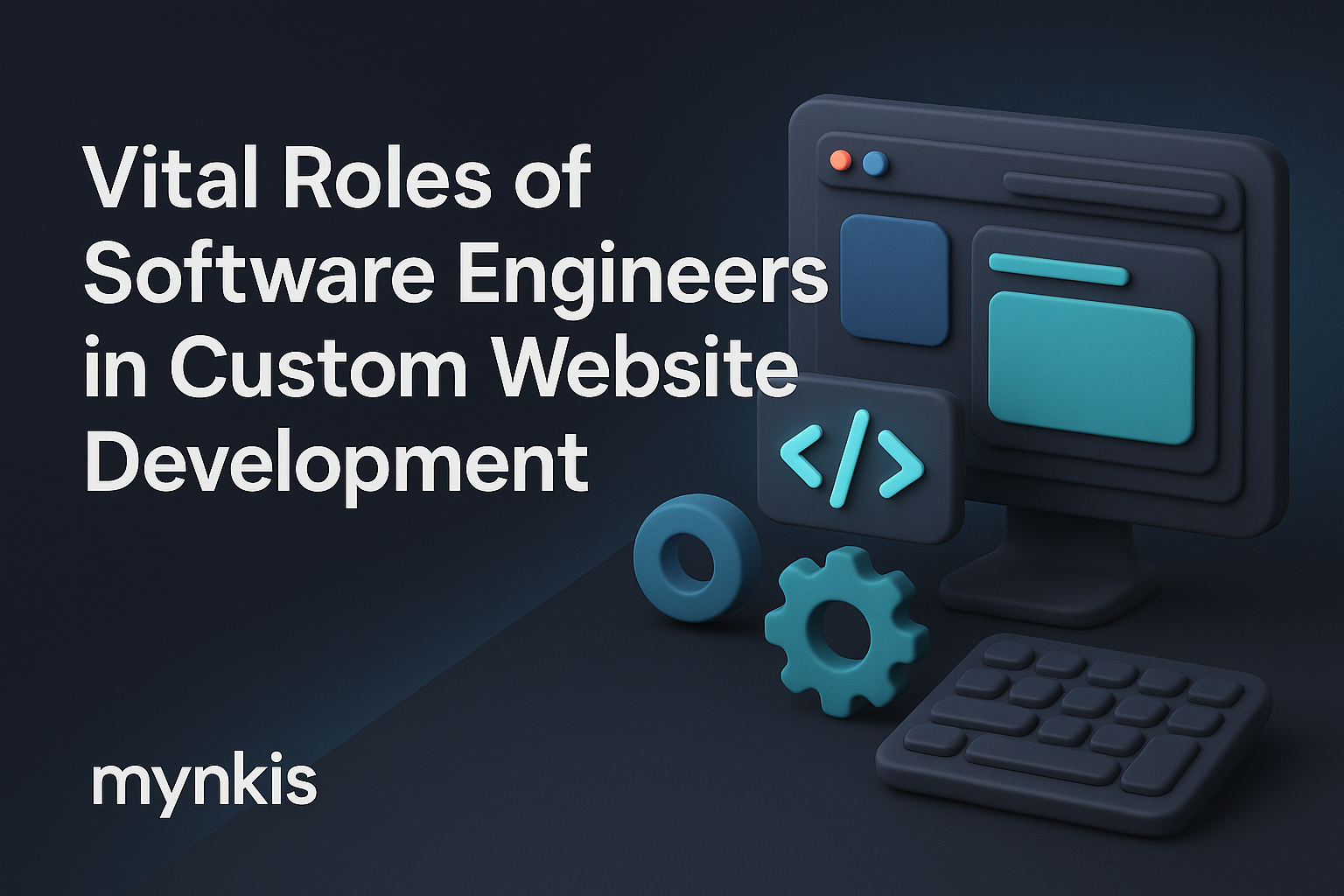Schedule a Demo
In the world of custom web development, software engineers serve as the backbone of innovation and functionality. These talented professionals translate business needs into digital realities, ensuring websites are not just aesthetically pleasing but also robust and efficient. As an entrepreneur or business owner looking to establish an online presence, understanding the pivotal roles of software engineers can help you leverage their skills for building custom solutions tailored to drive organic growth.
Front-end engineers are the artists of the web world. They specialize in the visual elements and user interaction layers of a website. By using technologies like HTML, CSS, and JavaScript, these engineers ensure that your site's interface is intuitive, responsive, and optimized for search engines. For small business owners, an engaging front-end not only captures customer attention but also improves SEO performance.
In my interactions with startups focused on enhancing customer reach, I've observed the transformative impact a well-crafted front end can have. A streamlined user experience reduces bounce rates, which directly correlates with higher search engine rankings.
While front-end focuses on looks, back-end engineers concentrate on functionality and performance. They work on the server-side, managing databases, ensuring site security, and handling the logic that powers your custom website. These engineers use languages such as Python, Ruby, PHP, and Java to build robust systems that keep your online presence secure and scalable.
For small businesses aiming for organic growth, back-end efficiency becomes paramount. A site that loads quickly and securely not only boosts user satisfaction but also aligns with Google's emphasis on site speed for SEO. Insights from the team at Google Search Central underline this point.
Full-stack engineers are a jack-of-all-trades in the custom development world. They possess proficiency in both front-end and back-end technologies, enabling them to oversee a project from start to finish. For an entrepreneur or C-level executive, having a full-stack engineer on your team means you can handle complex custom website solutions in-house.
In reality, when scaling from small to larger enterprises, full-stack engineers simplify the development process. They address custom requirements seamlessly, leveraging a comprehensive understanding of site architecture to push organic growth.
DevOps engineers play a crucial role in bridging the gap between development and operations. They automate processes, from code deployment to monitoring and maintenance, which ultimately leads to a more resilient and efficient website. For business owners, a streamlined development pipeline reduces costs and speeds up your ability to respond to market demands.
I recall working with a manager of an emerging e-commerce site who found immense value in the work of DevOps engineers. With automation, their platform saw a significant reduction in downtime and enhancements in performance. Such optimizations contribute not only to site reliability but also bolster SEO by reducing page load times.
API engineers specialize in integrating different software systems, ensuring that your custom website can connect effortlessly with other applications and services. In today’s interconnected digital ecosystem, this integration is crucial for expanding functionality, improving user experiences, and maintaining a competitive edge.
Notably, a project with a professional management firm aiming to automate client onboarding processes demonstrated the critical role of API engineers. By integrating CRM and project management tools directly into their custom website, they witnessed a streamlined process that reduced manual labor and increased client satisfaction.
Data engineers focus on managing and optimizing data flow from various sources, crafting infrastructures that facilitate data analytics. For C-level executives interested in tracking user behavior to refine their SEO strategies, data engineers are indispensable. Their work helps create data-driven environments where business decisions regarding site optimization are grounded in solid analytics.
A reputable organization like the Data Science Central regularly emphasizes how crucial data engineering is for leveraging big data insights. For entrepreneurs, this means not guessing but knowing how to tweak and improve their websites for better online performance.
QA engineers are responsible for testing and validating the functionality, usability, and efficiency of your custom website. From automated testing to user acceptance testing, they make sure that what is developed works well for your intended audience. For any business owner seeking reliability and high performance in their online assets, QA engineers are invaluable.
Based on available research and industry practice, the detailed work of QA engineers directly influences the user experience and, by extension, SEO outcomes. Although individual results may vary, every professional manager should understand the pivotal role of QA in achieving long-term success online.
By understanding and utilizing the skills of software engineers, entrepreneurs can create powerful, custom websites that not only represent their brand uniquely but also excel in driving organic growth through sophisticated SEO strategies. Engaging a team capable of covering front-end charm, back-end functionality, full-stack versatility, DevOps efficiency, API connectivity, data-informed decisions, and quality assurance testing is essential for climbing the digital ladder.
Selecting the right mix of these skilled professionals is key, although aligning their collective efforts requires careful planning and strategic oversight from business leaders aiming to boost their online presence effectively.
